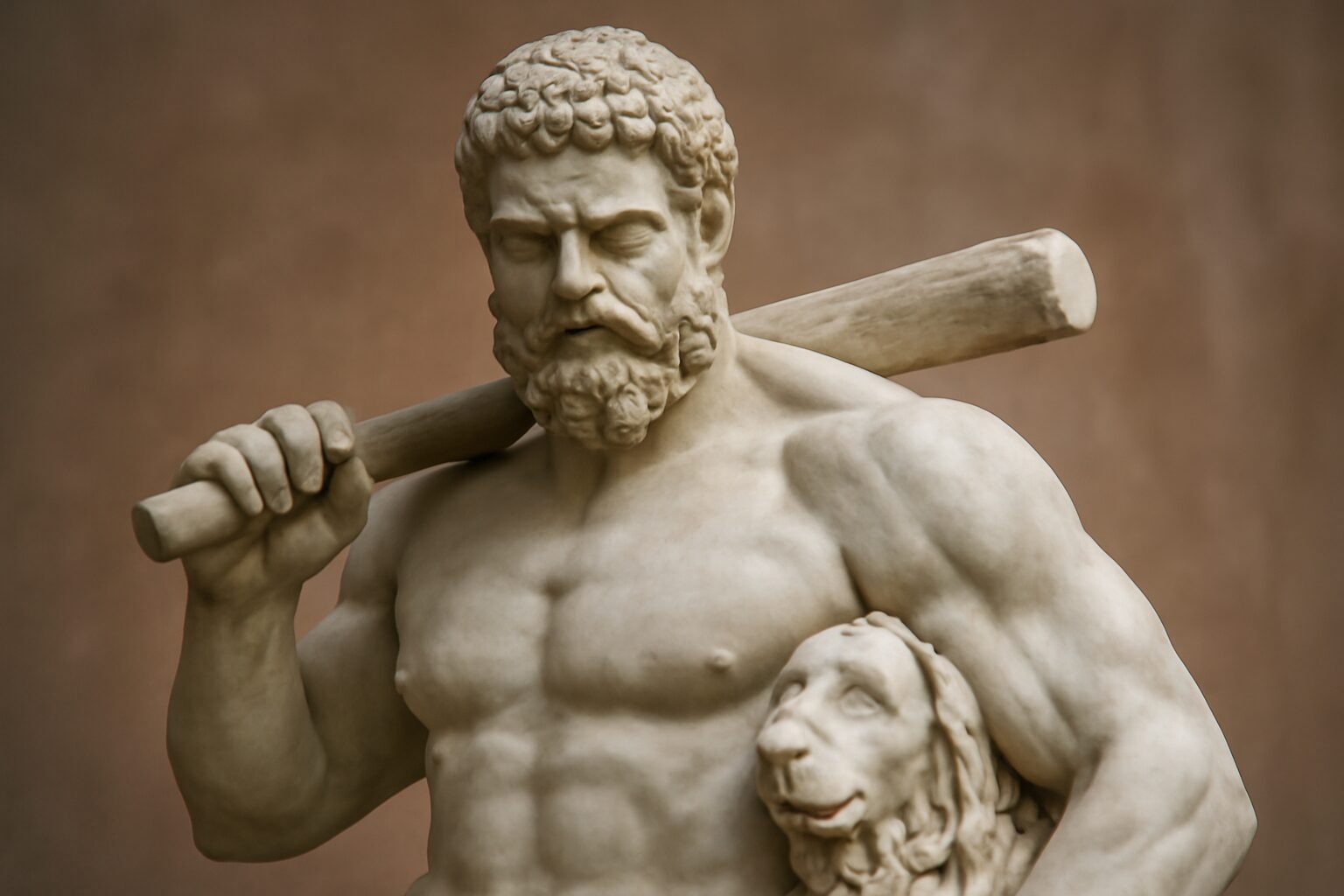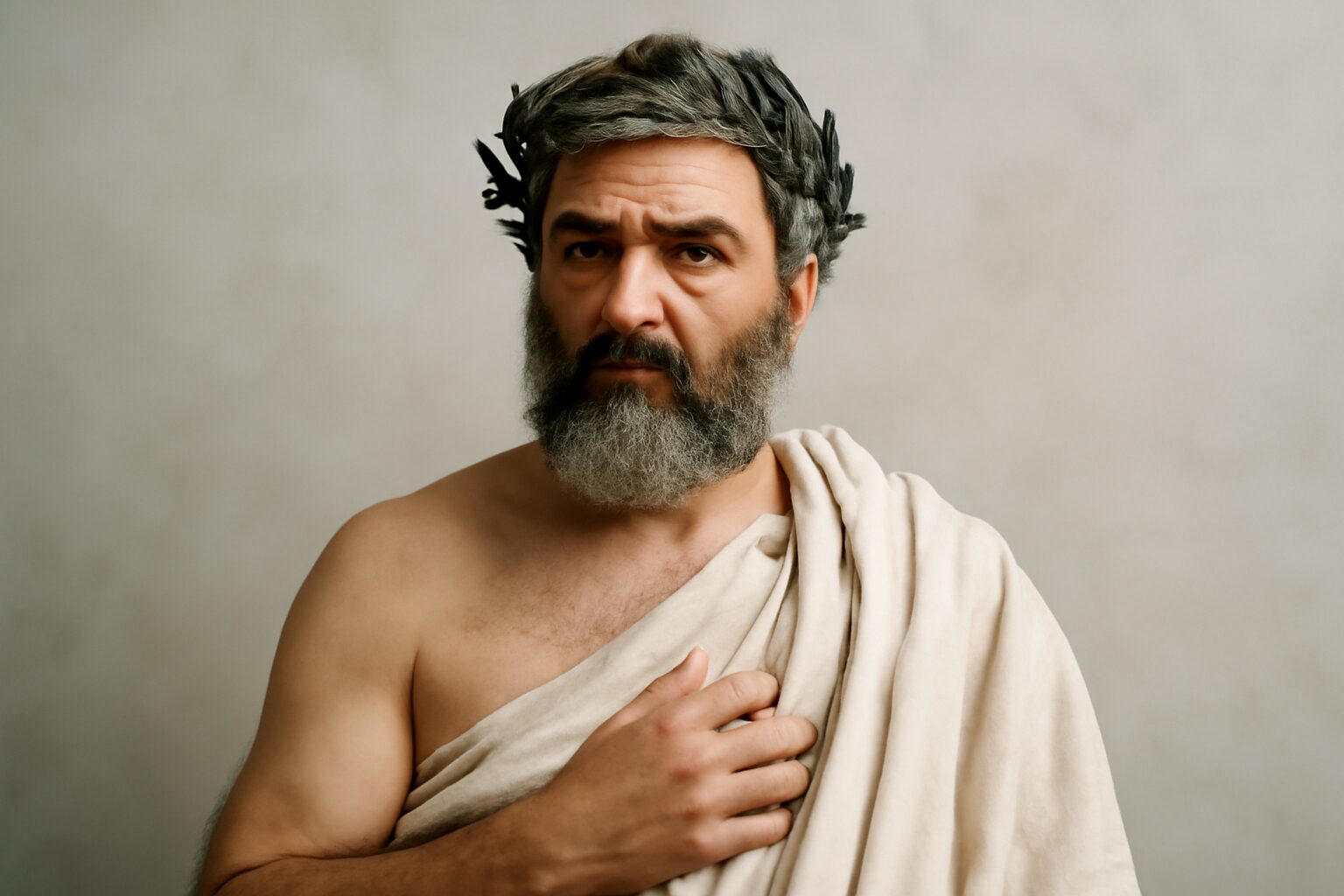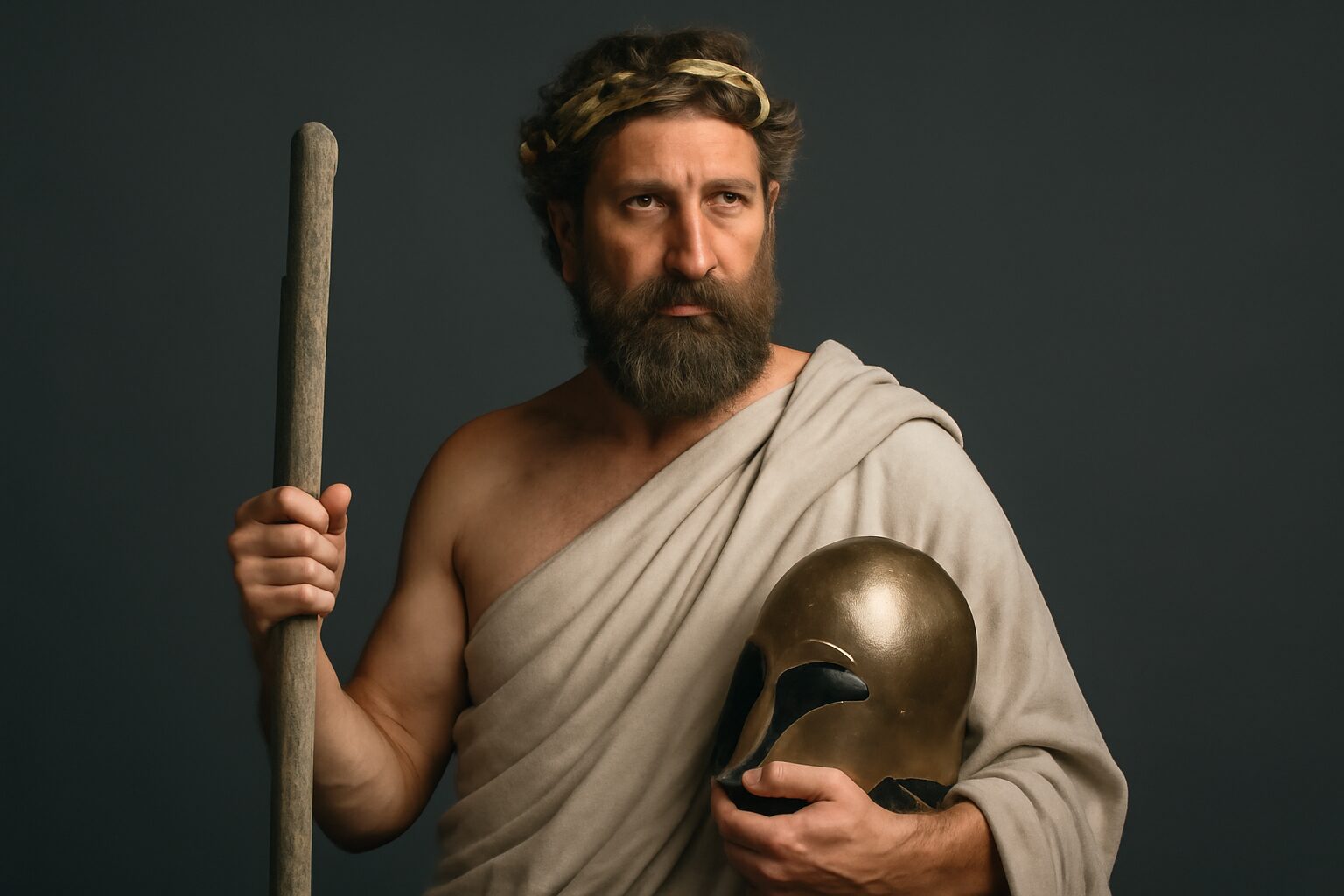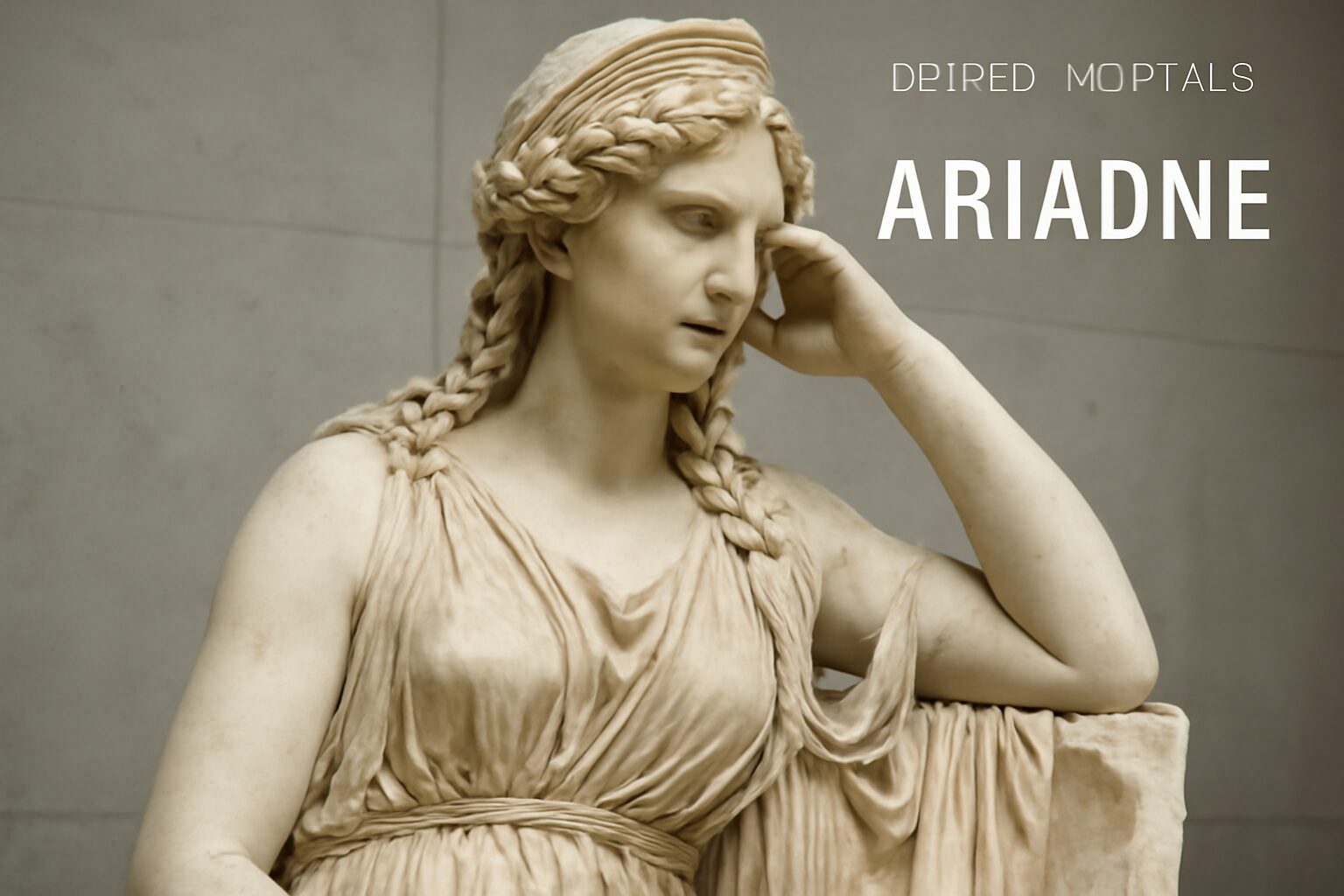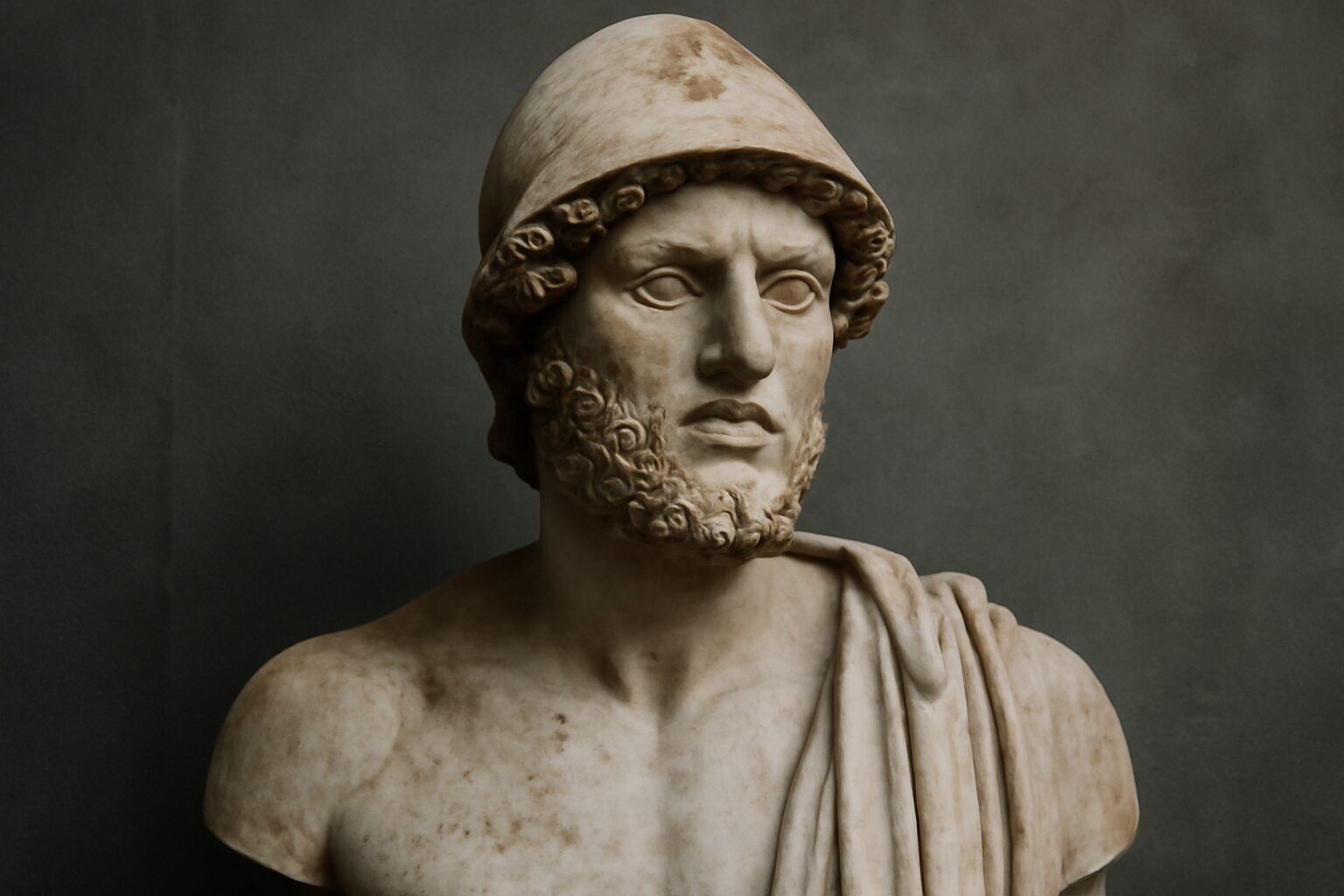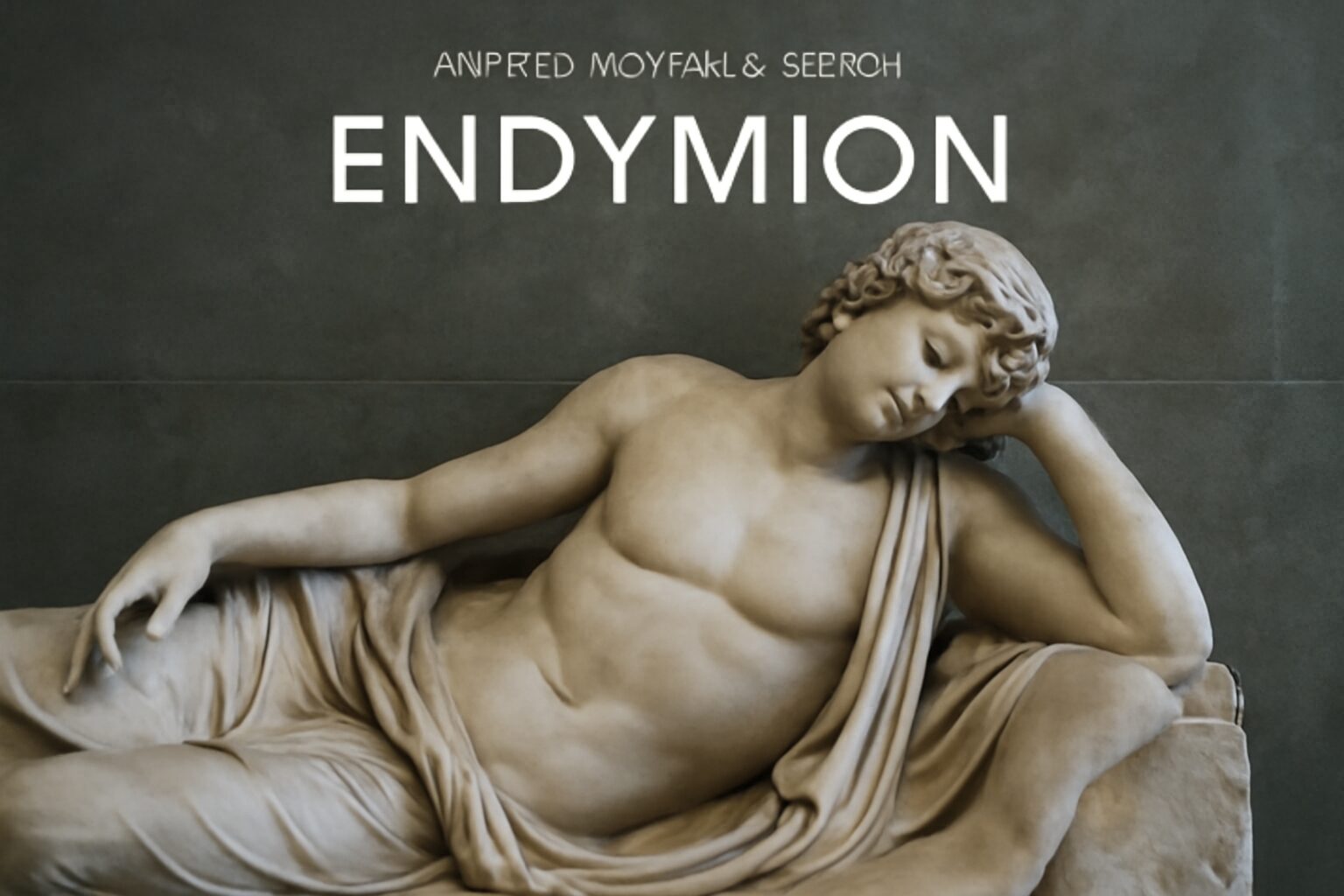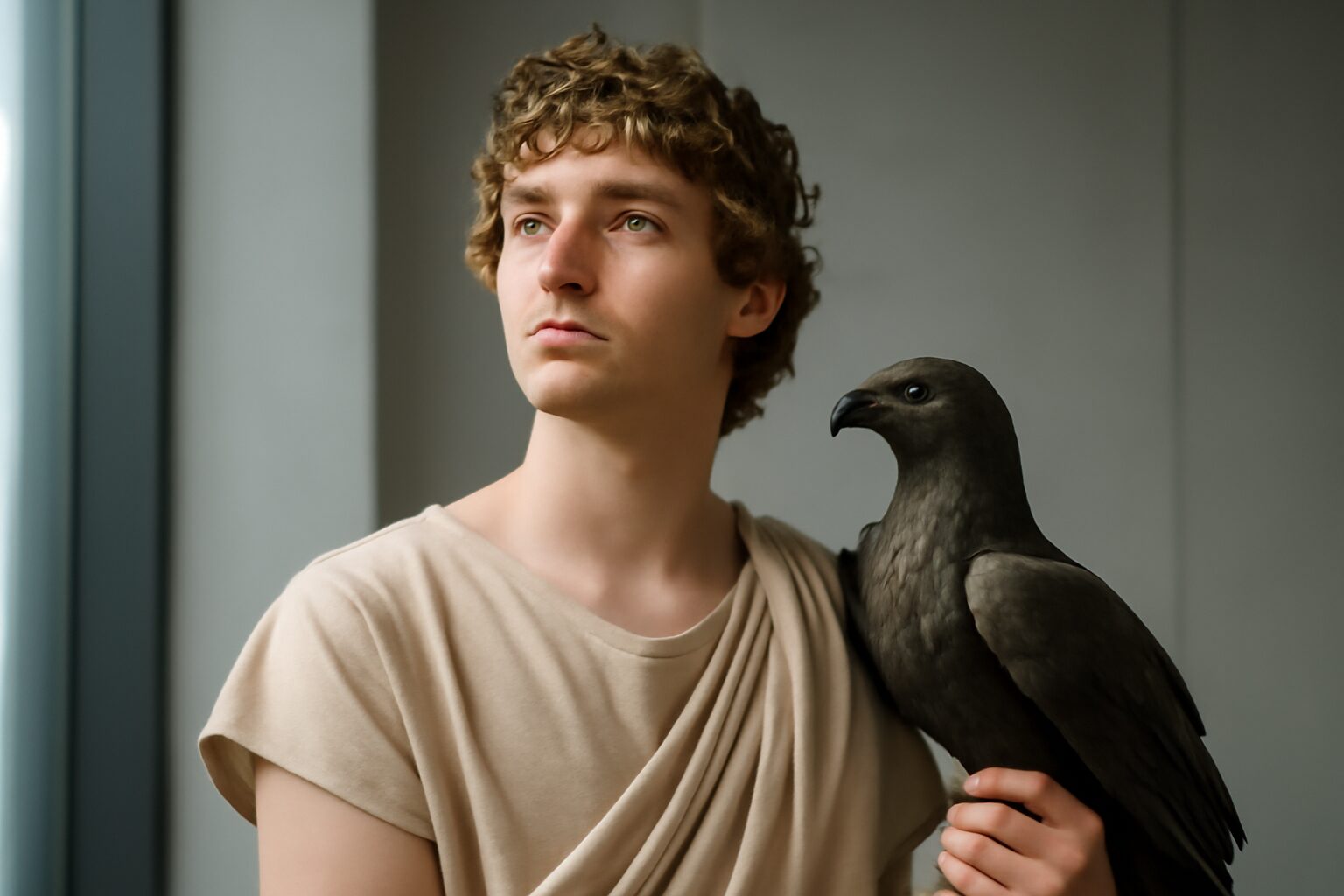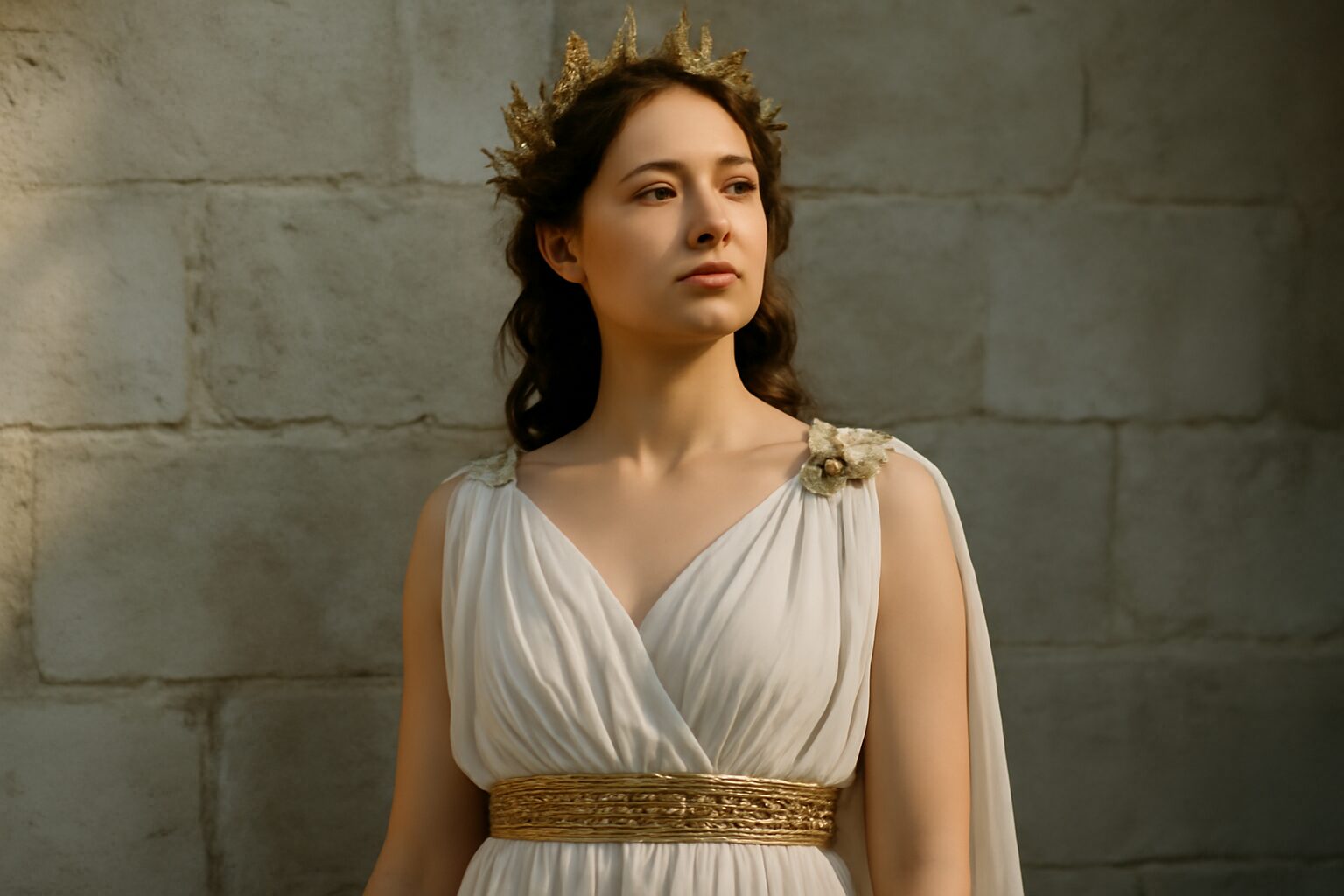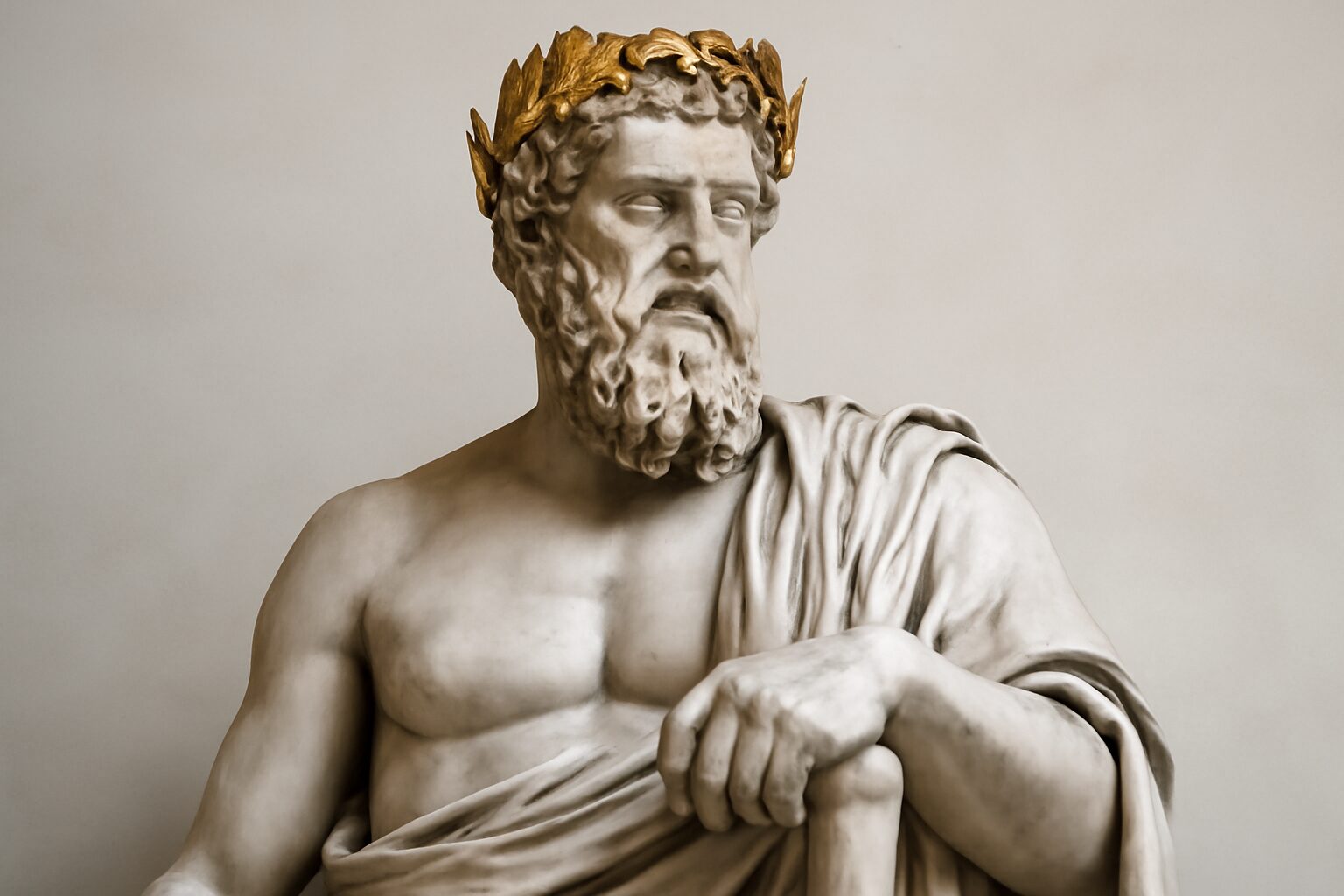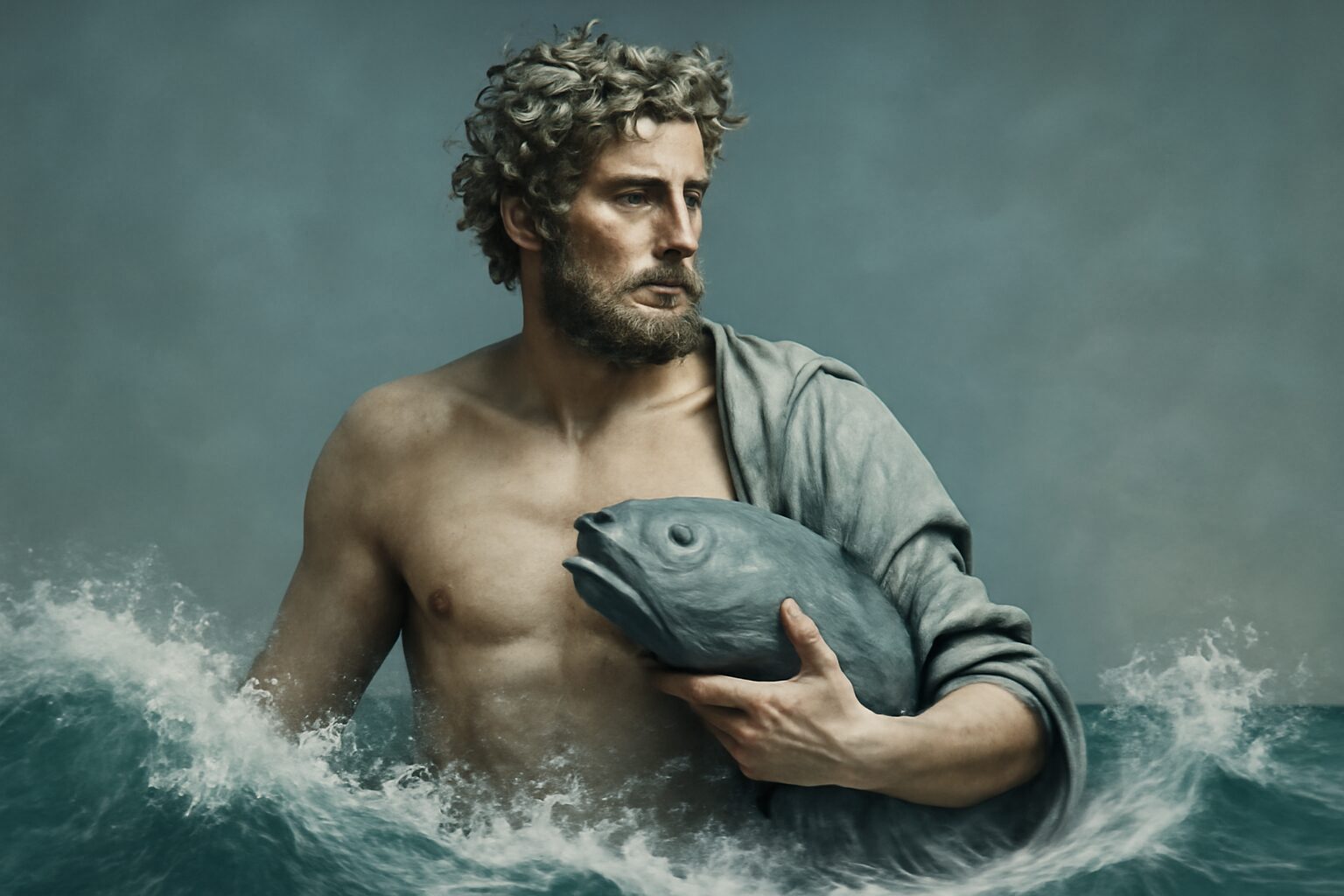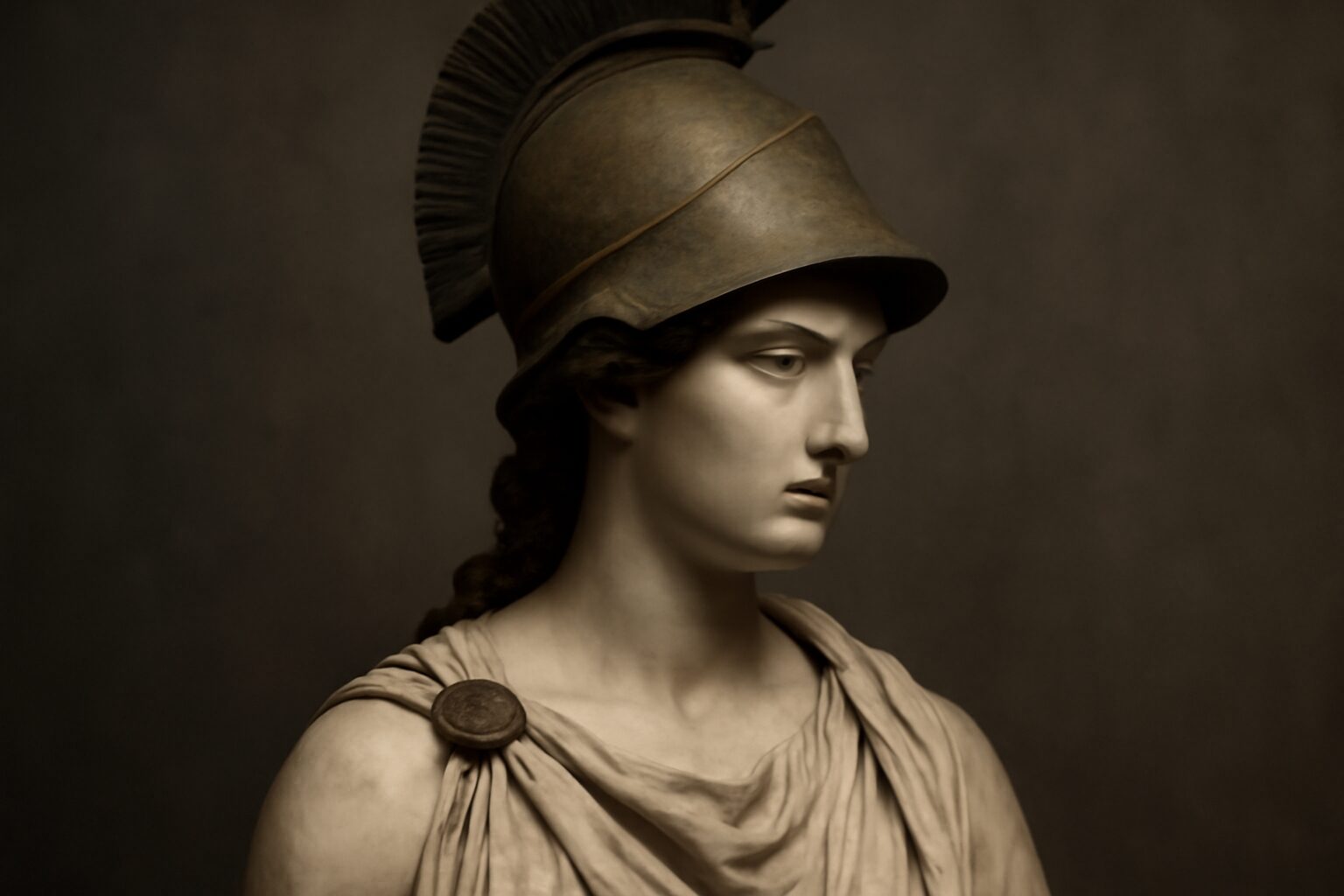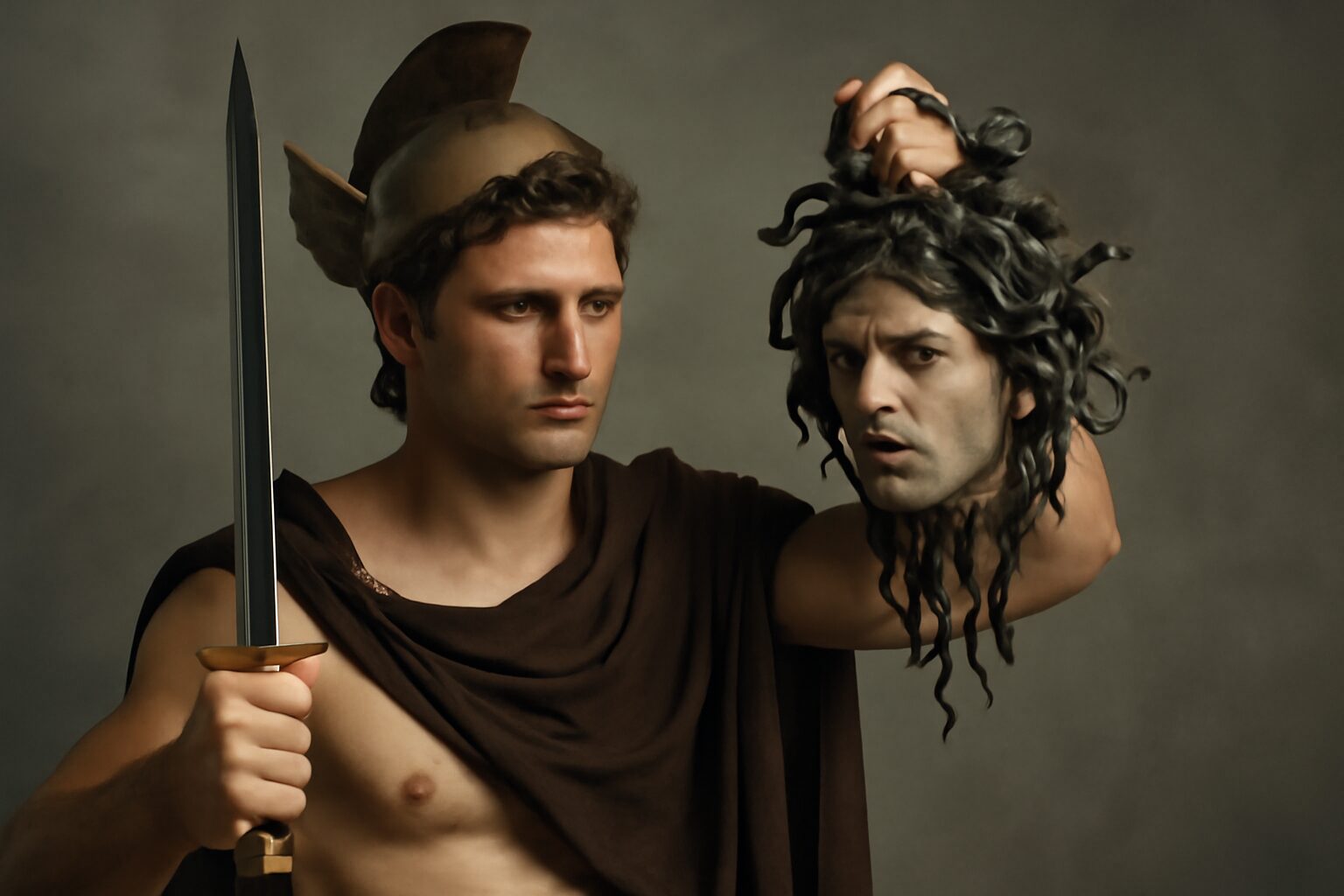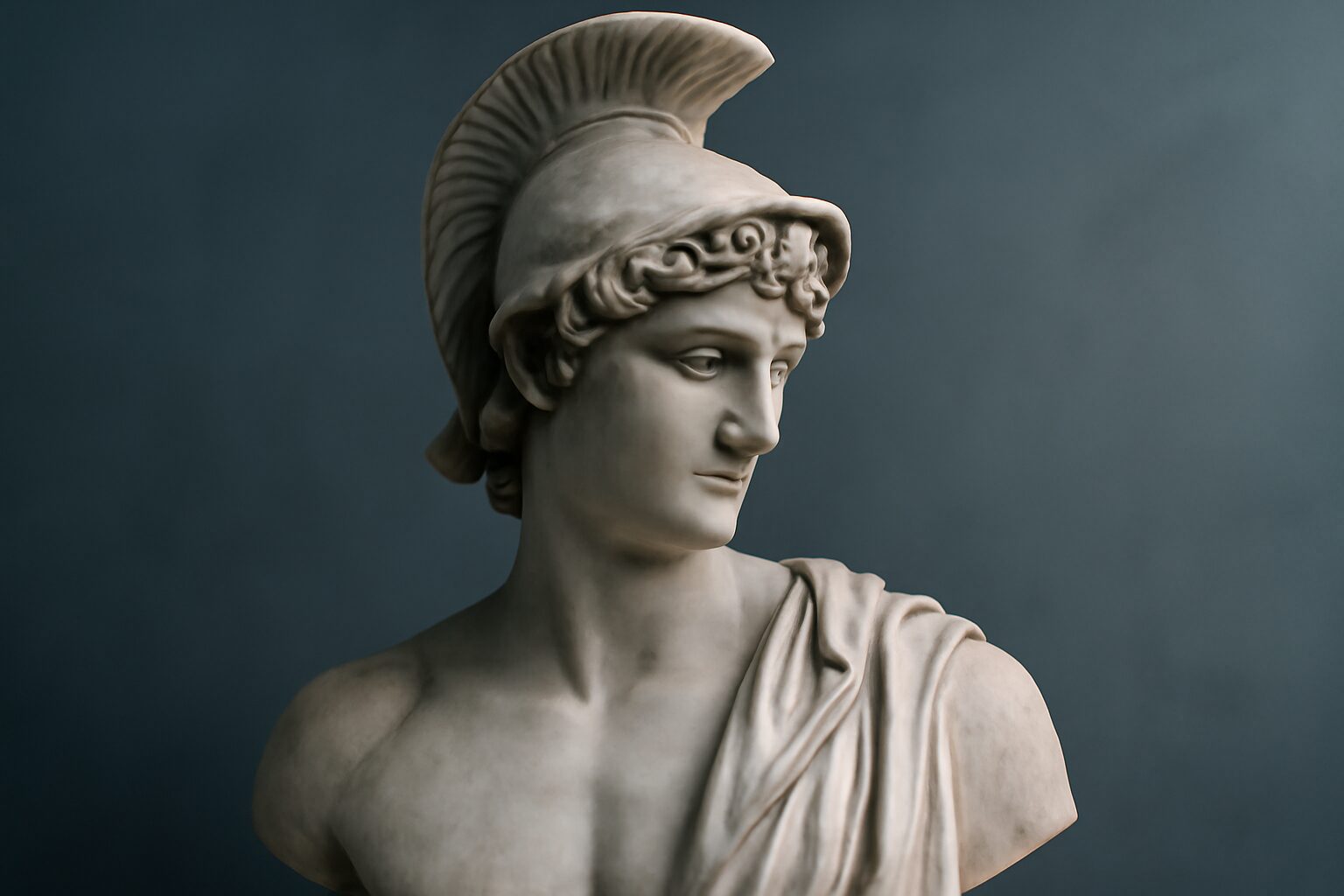Heracles: The Legendary Hero of Greek Mythology
Heracles (or Herakles in Greek), known as Hercules in Roman mythology, is one of the most celebrated heroes in Greek mythology. Born the son of Zeus and the mortal Alcmene, his extraordinary strength and heroic deeds made him a symbol of courage and endurance. His life was marked by both triumph and tragedy, earning him a place among the gods after his death.
The Birth and Early Life of Heracles
Heracles' birth was the result of Zeus's infidelity—his mother, Alcmene, was the wife of Amphitryon, a Theban general. Hera, Zeus's jealous wife, sought revenge by sending two serpents to kill the infant Heracles in his cradle. However, even as a baby, Heracles strangled the snakes with his bare hands, foreshadowing his future strength.
Raised in Thebes, Heracles received training in wrestling, archery, and music. His temper, however, often led to trouble—in one infamous incident, he killed his music teacher, Linus, with a lyre after being struck in frustration.
The Twelve Labors of Heracles
Heracles is best known for his Twelve Labors, a series of impossible tasks imposed upon him by King Eurystheus as penance for killing his wife and children in a fit of madness induced by Hera. These labors included:
- Slaying the Nemean Lion (whose hide became his iconic cloak)
- Defeating the nine-headed Hydra
- Capturing the Golden Hind of Artemis
- Cleaning the Augean stables in a single day
- Retrieving the Apples of the Hesperides
- Descending into the Underworld to capture Cerberus
Each labor showcased his strength, cunning, and resilience, solidifying his reputation as Greece's greatest hero.
Relationships and Legacy
Heracles had numerous wives and lovers, including Megara (tragically killed by him in his madness), Deianira (whose poisoned robe led to his death), and Hebe, the goddess of youth, whom he married after his apotheosis (ascension to godhood).
Despite his divine parentage, Heracles' struggles with fate, gods, and his own flaws made him a deeply human figure. He was worshiped as both a hero and a god, with cults dedicated to him across Greece. His legacy endured in art, literature, and philosophy, symbolizing perseverance against impossible odds.
Today, Heracles remains an enduring icon of strength and heroism, his name synonymous with superhuman feats and legendary adventures.
Alternative Names for Heracles (Herakles)
God Name: Hercules (Roman)
The Roman adaptation of the Greek hero Heracles. The Romans adopted many aspects of Greek mythology, often renaming the gods and heroes to fit their own culture. Hercules became one of the most celebrated figures in Roman mythology, with his stories largely mirroring those of Heracles but with some variations in details and emphasis.
God Name: Hercle (Etruscan)
The Etruscan version of Heracles, reflecting the cultural exchange between the Etruscans and the Greeks. Hercle appears in Etruscan art and mythology, often depicted in similar heroic scenarios as his Greek counterpart, but with distinct Etruscan attributes and interpretations.
God Name: Alcides (Greek (Epithet))
An alternative name for Heracles derived from his grandfather Alcaeus (Alkeus). This name was used in some Greek texts and myths, particularly in reference to his lineage before he was renamed Heracles by the Delphic oracle to appease Hera, who was angered by his birth.
God Name: Heracles Theos (Greek (Epithet))
An epithet meaning 'Heracles the God,' used after his apotheosis (becoming a god). After his mortal death, Heracles was granted immortality and became a god, worshiped in both Greek and Roman traditions under this and similar titles.
God Name: Heracles Alexikakos (Greek (Cult Title))
A cult title meaning 'Heracles the Averter of Evil.' This name was used in religious contexts where Heracles was invoked for protection against harm or malevolent forces, reflecting his role as a guardian and benefactor in Greek religion.
Tales about Heracles (Herakles)
Heracles and the Nemean Lion: A Test of Strength
In his first labor, Heracles was tasked by King Eurystheus to slay the Nemean Lion, a beast with an impenetrable hide. After his arrows and club proved useless, Heracles wrestled the lion into submission, eventually strangling it with his bare hands. To skin the creature, he used one of its own claws, the only thing sharp enough to pierce its hide.
Assistance from Athena
During the struggle, Athena, goddess of wisdom and warfare, guided Heracles to use the lion's claw against it. Her strategic insight was crucial, turning an impossible task into a triumph of wit over brute force.
Heracles and the Golden Apples of the Hesperides
For his eleventh labor, Heracles was sent to retrieve the golden apples from the garden of the Hesperides, guarded by the hundred-headed dragon Ladon. After seeking advice from the titan Prometheus, who was bound to a rock, Heracles slew the eagle tormenting him and learned the secret to obtaining the apples.
Encounter with Atlas
Heracles persuaded Atlas, the titan holding up the sky, to fetch the apples for him. In return, Heracles shouldered the celestial burden. When Atlas tried to abandon his duty, Heracles tricked him into taking back the sky, securing the apples and completing the labor through clever negotiation.
Frequently Asked Questions
Who was Heracles in Greek mythology?
Heracles, also known as Hercules in Roman mythology, was a divine hero and the son of Zeus and the mortal Alcmene. He is famous for his incredible strength and for completing the Twelve Labors, a series of near-impossible tasks given to him as punishment.
Why is Heracles considered a deified mortal?
Heracles is considered a deified mortal because, despite being born to a human mother, he achieved godhood after his death due to his heroic deeds and his divine lineage as the son of Zeus. He was welcomed into Mount Olympus and married the goddess Hebe.
What are the Twelve Labors of Heracles?
The Twelve Labors were a series of tasks imposed on Heracles by King Eurystheus as punishment for killing his family in a fit of madness. These labors included slaying the Nemean Lion, capturing the Golden Hind, and retrieving the Apples of the Hesperides, among others.
What lessons can we learn from Heracles' story?
Heracles' story teaches perseverance, redemption, and the power of overcoming adversity. Despite facing immense challenges and personal tragedies, he worked to atone for his mistakes and proved that even mortals can achieve greatness through effort and virtue.
How is Heracles relevant in modern culture?
Heracles remains a symbol of strength, heroism, and resilience. His stories inspire modern literature, movies, and art, and his name is often associated with extraordinary feats. The themes of his struggles and triumphs continue to resonate with people today.

